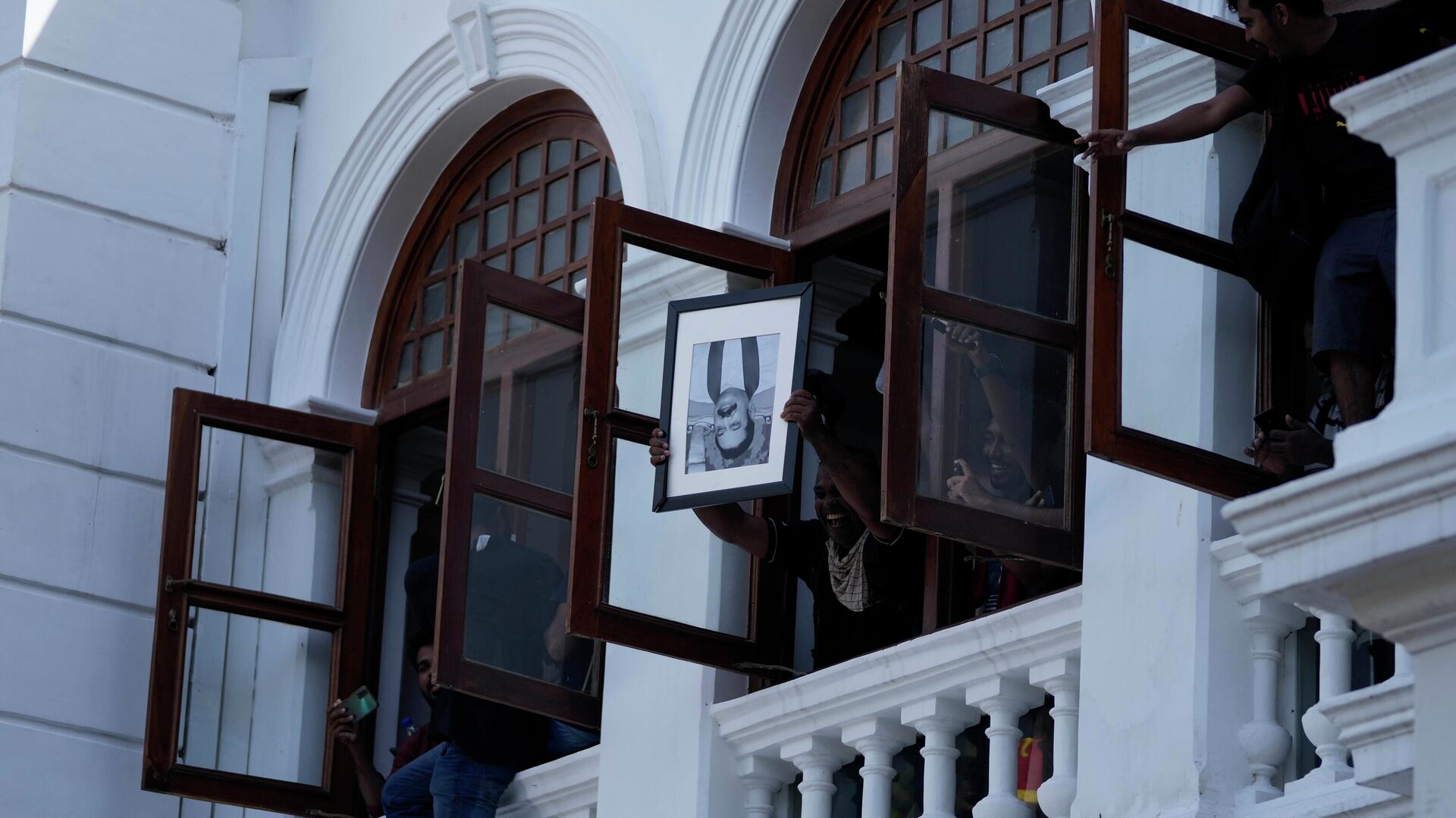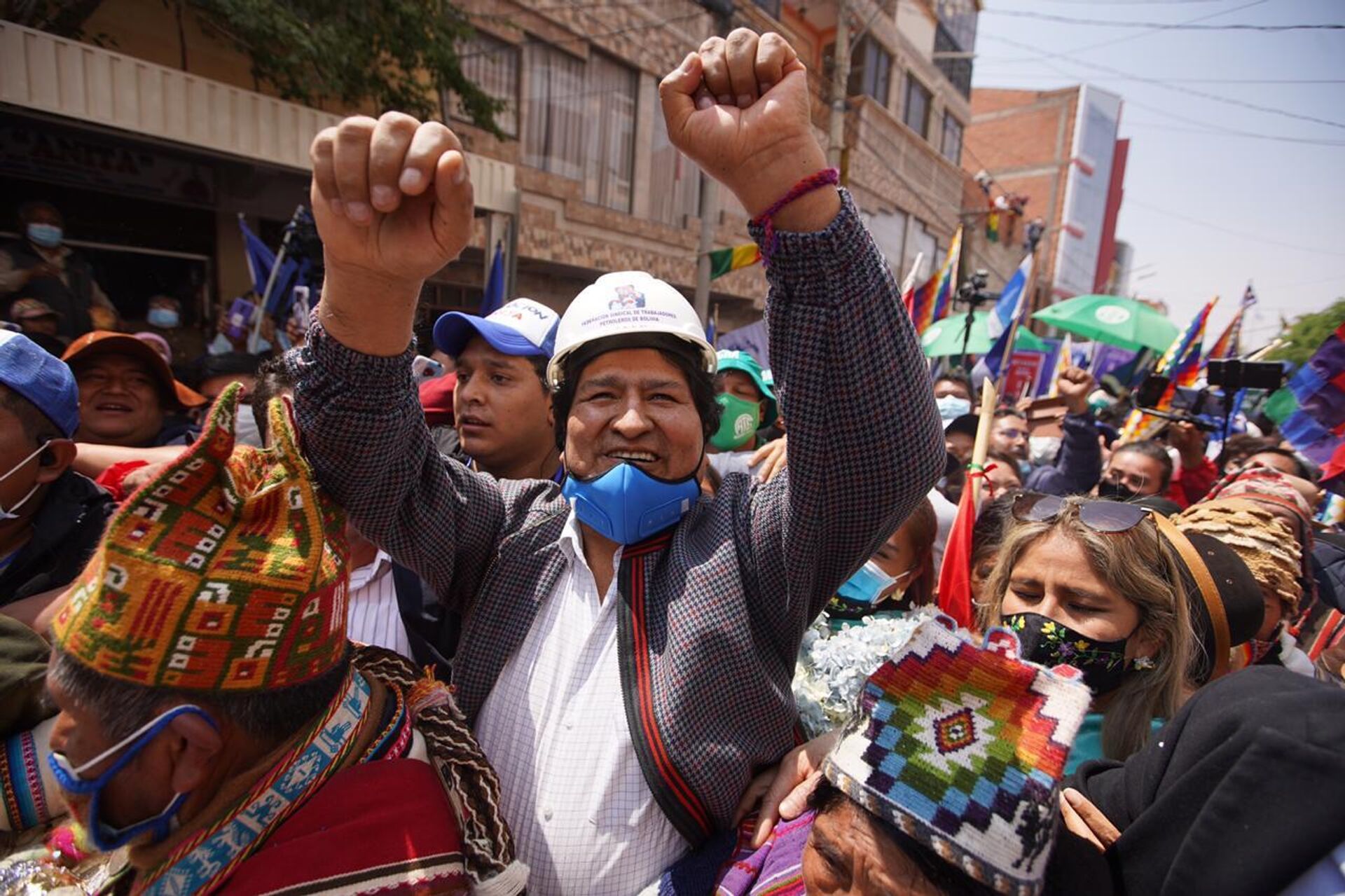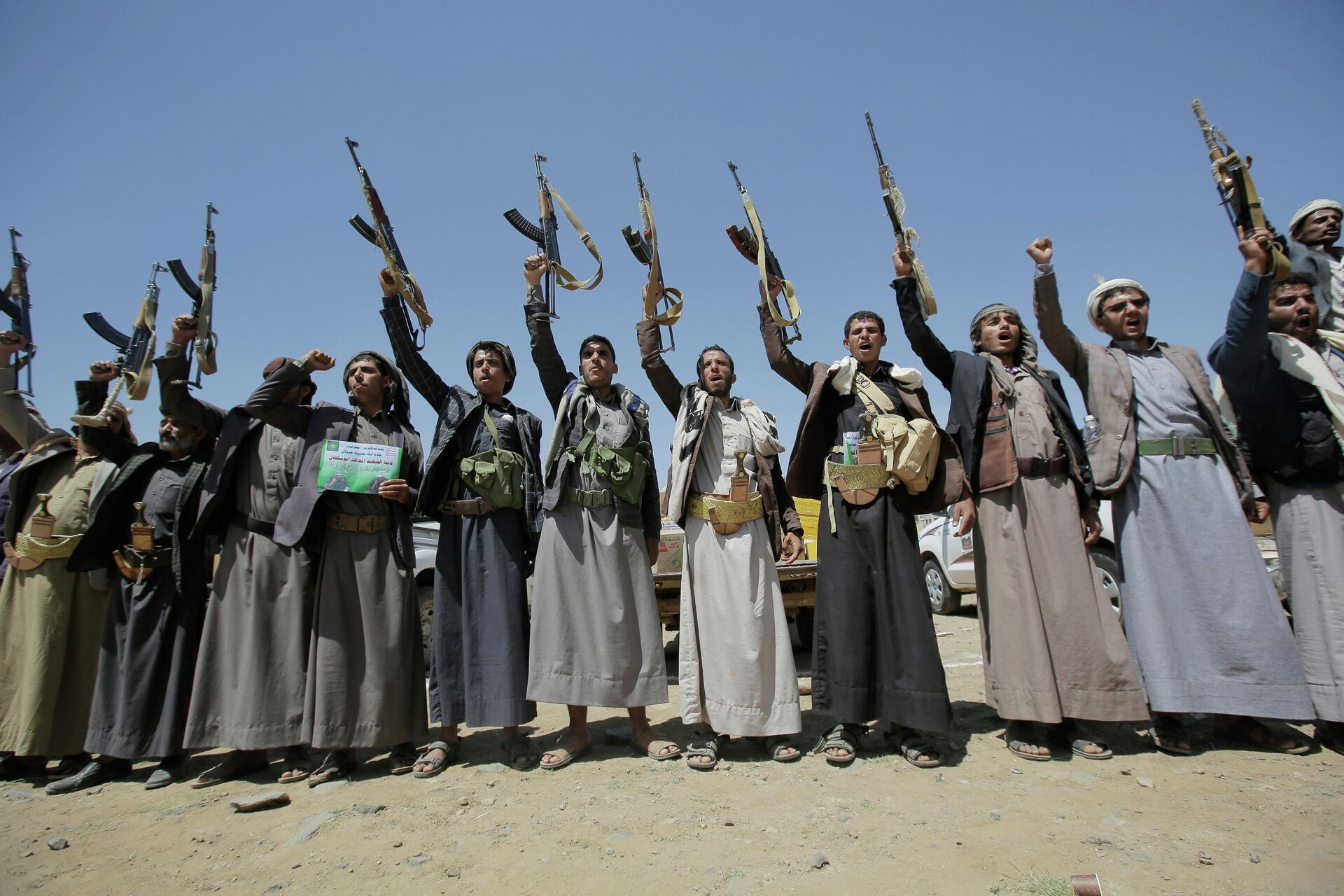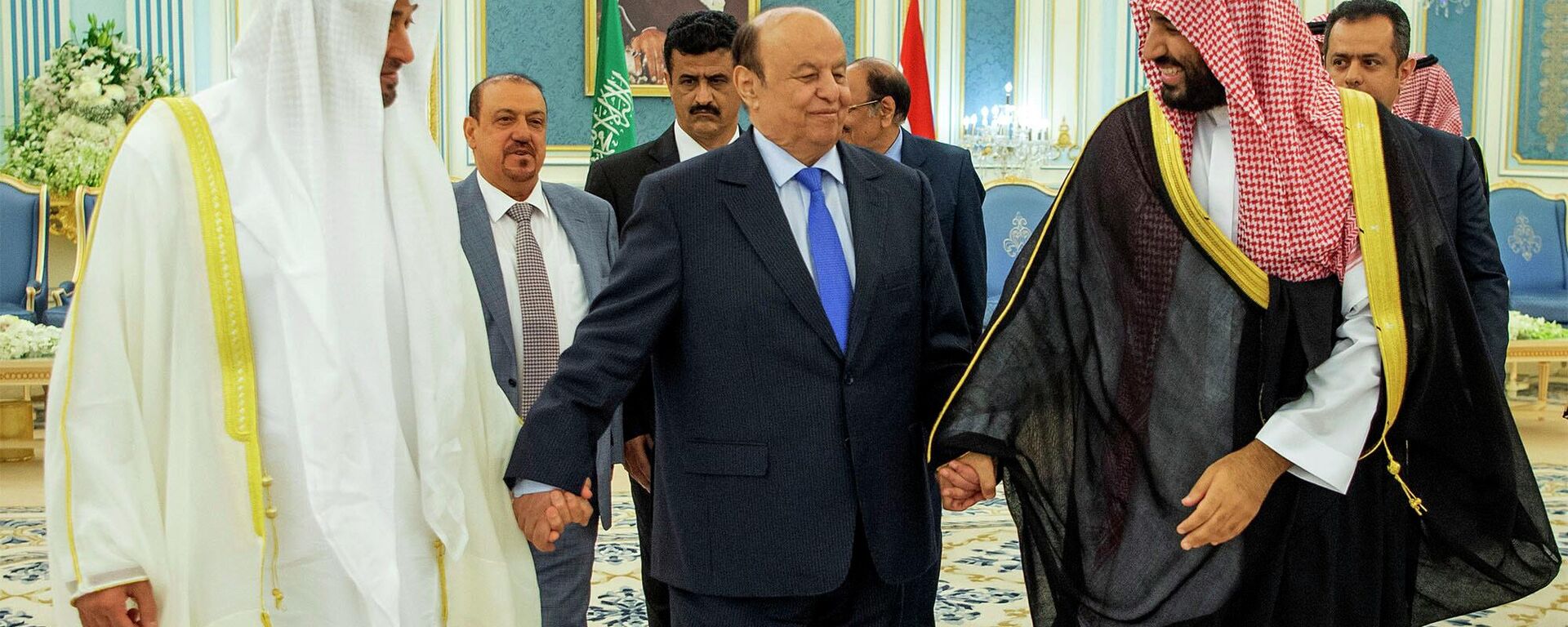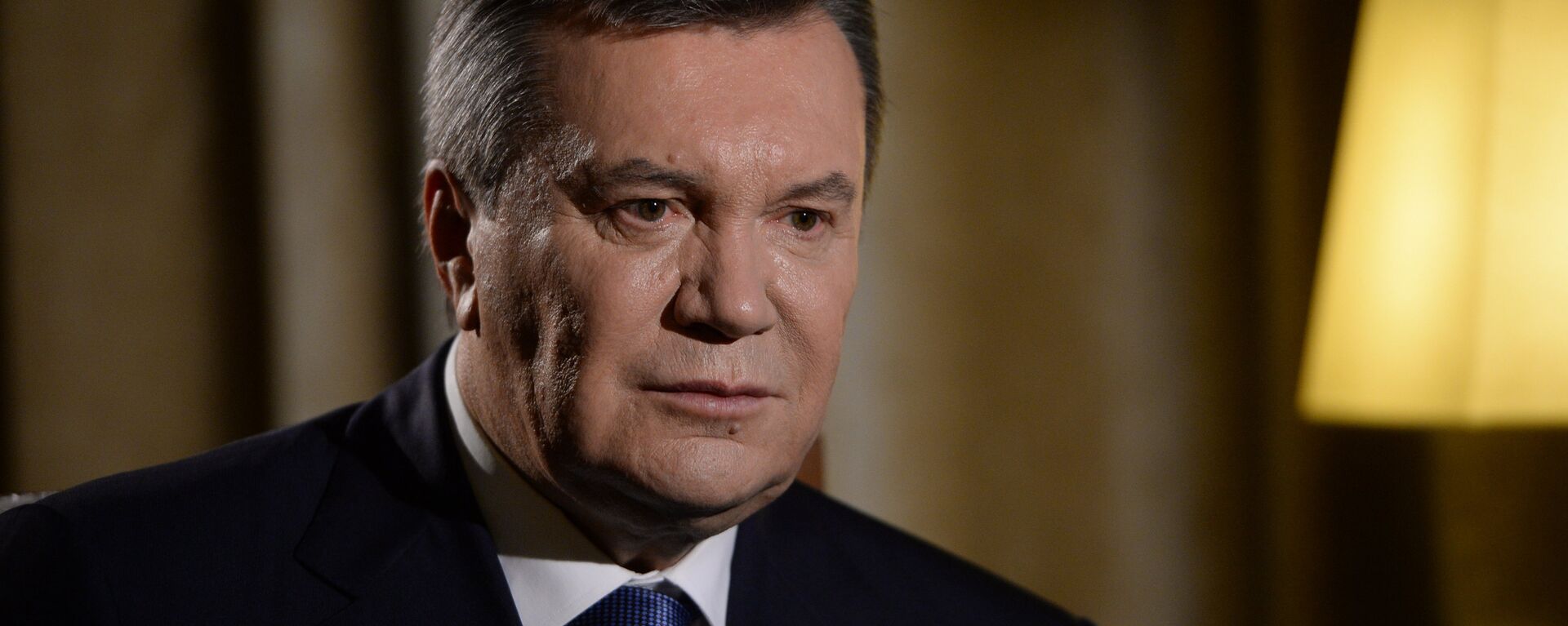https://sputnikglobe.com/20220713/moneybags-for-some-triumphant-return-for-others-fate-of-five-presidents-forced-to-flee-their-posts-1097286271.html
Moneybags for Some, Triumphant Return for Others: Fates of Five Presidents Forced to Flee Their Post
Moneybags for Some, Triumphant Return for Others: Fates of Five Presidents Forced to Flee Their Post
Sputnik International
Sri Lankan President Gotabaya Rajapaksa fled to the Maldives on Wednesday, leaving his country in chaos after months of unrest sparked by fuel shortages... 13.07.2022, Sputnik International
2022-07-13T18:04+0000
2022-07-13T18:04+0000
2023-02-14T14:09+0000
sri lanka
list
victor yanukovych
zine el abidine ben ali
evo morales
ashraf ghani
abdrabbuh mansur hadi
president
https://cdn1.img.sputnikglobe.com/img/07e6/07/0d/1097271378_0:321:3071:2048_1920x0_80_0_0_dd304427632da434d55c4c009e0b2316.jpg
The ouster of Sri Lankan President Gotabaya Rajapaksa has roused substantial global media attention, particularly in light of the colorful images coming out of the country of protesters storming his opulent Colombo residence and turning it into a tourist attraction, posing for selfies, and organizing pool parties and cookouts.But the chaos in Colombo isn’t the first time in the last decade or so that a head of state has been ousted from office in a time of crisis and forced to flee, with the last dozen years witnessing at least five comparable cases.Ashraf Ghani’s Bags of MoneyLast August, a ten-day blitzkrieg offensive by the Taliban* to capture cities in the midst of the NATO withdrawal culminated in the fall of Kabul and the collapse of the Afghan government. President Ashraf Ghani, the US-educated academic-turned president, fled the country he ruled at the West’s behest for seven years.Ghani evacuated Kabul on August 15, the same day that Taliban fighters entered the city, and eventually ended up in the United Arab Emirates, where he took refuge. Ghani apologized to his countrymen and women for bolting, saying that leaving the capital “was the most difficult decision” of his life and that he took it to avoid a repeat of the bloody street fighting witnessed in the city between government and Taliban forces in the 1990s. In addition, he said, his security team had advised him not to stay due to the risk of assassination or capture.Ghani has categorically rejected the allegations against him, and has said that he would welcome an international investigation to clear his good name.Evo Morales’ Happy EndingOn November 10, 2019, Bolivia’s long-serving democratic socialist president Evo Morales was forced to step down after weeks of protests sparked by an election whose results were disputed by the country’s US-backed opposition. Characterizing the crisis as a “coup” and fearing he would be killed by assassins hired out by his enemies, Morales fled to Mexico, where he was granted asylum by President Andres Manuel Lopez Obrador.The Trump administration hailed Morales’ ouster, with the US president tweeting that the unrest sent “a strong signal to the illegitimate regimes in Venezuela and Nicaragua that democracy and the will of the people will always prevail.”But the anti-Morales’ plot’s victory was short-lived. Immediately after touching down in Mexico, Morales vowed that he’d remain in politics, and that his “fight” against “discrimination and humiliation” would continue.The fate of his adversaries has not been so bright, with Jeanine Anez, the right wing politician who took over after Morales’ ouster, recently sentenced to ten years in prison for her role in the 2019 coup.Yemen’s HadiIn 2012, Yemeni politician Abdrabbuh Mansur Hadi seemed to have the world at his feet. Succeeding President Ali Abdullah Saleh, whom he faithfully served as vice president starting in 1994, Hadi won the February 2012 presidential elections with an impressive 100 percent of the vote, running as the sole candidate. He proceeded to initiate a US- and Saudi-supported reform program aimed at transforming Yemen into a federal model of government under which six regions would enjoy large-scale political autonomy. Hadi also supported ramping up cooperation with Washington to fight piracy in the Gulf of Aden, and al-Qaeda** cells attempting to set up shop in Yemen’s sparsely populated northeastern territories.Hadi’s reforms, allegations of corruption, and the ill-fated decision to end fuel subsidies in 2014 proved fatal, and between late 2014 and early 2015, much of the country was overrun by the Houthis, an Islamist, social justice-oriented political and militant movement dominant in the country’s populous western provinces. In January 2015, Hadi left his presidential palace in Sana’a for the last time, and, without resigning, flew to Saudi Arabia.Two months later, in March 2015, a Saudi-led military coalition began a military operation in Yemen aimed at restoring Hadi to power. Seven years on, the coalition has made little progress, and the impoverished southern Arabian nation remains mired in a deep political, military, economic and humanitarian crisis. Meanwhile, the Houthis have counterattacked by launching drone and missile strikes targeting Saudi infrastructure, military bases, airports, oil facilities, missile defense systems and cities, with no amount of sophisticated US-made air defense hardware seeming sufficient to stop the attacks.As for Hadi, the exiled president resigned from the post in April, transferring power to an eight-member ‘presidential leadership council’ tasked with negotiating a permanent ceasefire with the Houthis.Ukraine’s YanukovychOf all the ejections from office featured in this list so far, perhaps none have been more consequential to the geopolitical instability being experienced by the world today than that of Ukrainian President Viktor Yanukovych.Yanukovych handcrafted the crisis which would culminate in his ouster in the winter of 2013 by pulling a major political U-turn and rejecting an association agreement with the European Union in favor of closer ties with the Russian-led Eurasian Economic Union. The decision prompted pro-EU protesters to flood the center of Kiev, with demonstrators establishing tent encampments and occupying the heart of the city – the Maidan Nezalezhnosti (lit. ‘Independence Square’).Protests continued for weeks, with Yanukovych making concessions under EU pressure, accepting the resignation of the government of Prime Minister Nikolai Azarov in late January, and negotiating with an increasingly emboldened opposition to try to resolve the crisis.On February 20, protests turned bloody, with 49 demonstrators and four police officers killed by mysterious snipers in a single day. On February 22, just a day after reaching an EU-backed agreement on the settling the crisis through early elections, Yanukovych fled Kiev in fear for his life, traveling east and slipping across the border into Russia, where he was offered refuge. Pro-European forces in Ukraine’s parliament drafted a resolution to strip Yanukovych of power, claiming he had “withdrawn from his duties in an unconstitutional manner.” From Russia, Yanukovych blasted the new authorities, and characterized his ouster as a coup d’état.Tunisia’s Ben AliOn January 14, 2011, President Zine El Abidine Ben Ali’s 24-year reign as Tunisian leader came to an end, with the president and his family fleeing the country to Saudi Arabia after weeks of protests which would hail the start of the so-called ‘Arab Spring’. The ‘Tunisian Revolution’ was driven by long-standing grievances among Tunisians about corruption, high unemployment, inflation, and general poor living conditions, as well as limitations on freedom of speech. The protests were sparked by 26-year-old street vendor Mohamed Bouazizi, who set himself on fire in the street after police confiscated his wares when he failed to pay a bribe, and after his plea for help from the local governor was left unanswered. The young man's act, which would cause over 100 copycat immolation attempts, would spark a month of protests which culminated in Ben Ali’s ouster.After his ejection, the Tunisian president would live to a ripe old age of 83, passing away in Jeddah, Saudi Arabia in September 2019. But the unrest which his removal sparked would end up transforming much of the Middle East and engulfing some of its countries in crisis which continue to reverberate to this day. In 2011, major protests rocked Algeria and Yemen, and led to the overthrow of the government of Hosni Mubarak in Egypt. In Libya, NATO lent a ‘helping hand’ to anti-government rebels by launching a campaign of airstrikes against forces loyal to Muammar Gaddafi, culminating in his ouster and televised murder, and turning Libya into a failed state. The contagion of the Arab Spring also spread to Syria, which was turned into a breeding ground for jihadist militants who flocked to the country from the region and across the globe to take part in the unsuccessful US, Turkish, Saudi and Qatari-backed campaign to try to oust the government of Bashar Assad.* An organization subject to United Nations sanctions for terrorist activities.** A terrorist group outlawed in Russia and many other countries.
https://sputnikglobe.com/20211231/ex-afghan-president-ghani-says-he-was-made-scapegoat-for-fleeing-blames-trump---report--1091930561.html
https://sputnikglobe.com/20220417/saudi-arabia-pushed-yemens-hadi-to-resign-placed-him-on-house-arrest---wsj-1094841364.html
https://sputnikglobe.com/20220314/kiev-washington-responsible-for-failure-of-minsk-peace-agreements-ukraines-former-president-says-1093866063.html
https://sputnikglobe.com/20190921/ousted-tunisian-president-ben-ali-buried-in-saudi-arabia-1076860363.html
sri lanka
Sputnik International
feedback@sputniknews.com
+74956456601
MIA „Rossiya Segodnya“
2022
News
en_EN
Sputnik International
feedback@sputniknews.com
+74956456601
MIA „Rossiya Segodnya“
Sputnik International
feedback@sputniknews.com
+74956456601
MIA „Rossiya Segodnya“
sri lanka, list, victor yanukovych, zine el abidine ben ali, evo morales, ashraf ghani, abdrabbuh mansur hadi, president
sri lanka, list, victor yanukovych, zine el abidine ben ali, evo morales, ashraf ghani, abdrabbuh mansur hadi, president
Moneybags for Some, Triumphant Return for Others: Fates of Five Presidents Forced to Flee Their Post
18:04 GMT 13.07.2022 (Updated: 14:09 GMT 14.02.2023) Sri Lankan President Gotabaya Rajapaksa fled to the Maldives on Wednesday, leaving his country in chaos after months of unrest sparked by fuel shortages, inflation, allegations of corruption and a severe economic crisis. Sputnik looks back at other times in recent history that heads of state have been dramatically pushed out of office.
The ouster of Sri Lankan President Gotabaya Rajapaksa has roused substantial global media attention, particularly in light of the
colorful images coming out of the country of protesters storming his opulent Colombo residence and turning it into a tourist attraction, posing for selfies, and organizing pool parties and cookouts.
But the chaos in Colombo isn’t the first time in the last decade or so that a head of state has been ousted from office in a time of crisis and forced to flee, with the last dozen years witnessing at least five comparable cases.
Ashraf Ghani’s Bags of Money
Last August, a ten-day blitzkrieg offensive by the Taliban* to capture cities in the midst of the NATO withdrawal culminated in the fall of Kabul and the collapse of the Afghan government. President Ashraf Ghani, the US-educated academic-turned president, fled the country he ruled at the West’s behest for seven years.
Ghani evacuated Kabul on August 15, the same day that Taliban fighters entered the city, and eventually ended up in the United Arab Emirates, where he took refuge. Ghani
apologized to his countrymen and women for bolting, saying that leaving the capital “was the most difficult decision” of his life and that he took it to avoid a repeat of the bloody street fighting witnessed in the city between government and Taliban forces in the 1990s. In addition, he said, his security team had advised him not to stay due to the risk of assassination or capture.
The Russian Embassy in Kabul painted a different story, alleging that Ghani fled the city in a convoy of vehicles stuffed with so much cash that it could not fit in a helicopter which took him out of the country. UK media later alleged that Ghani may have sought to smuggle as much as $169 million in cash out of Kabul, with a former bodyguard later confirming that the ex-president’s entourage was carrying “many big bags” containing “hundreds of millions, perhaps billions of dollars.”
Ghani has categorically rejected the allegations against him, and has said that he would welcome an international investigation to clear his good name.
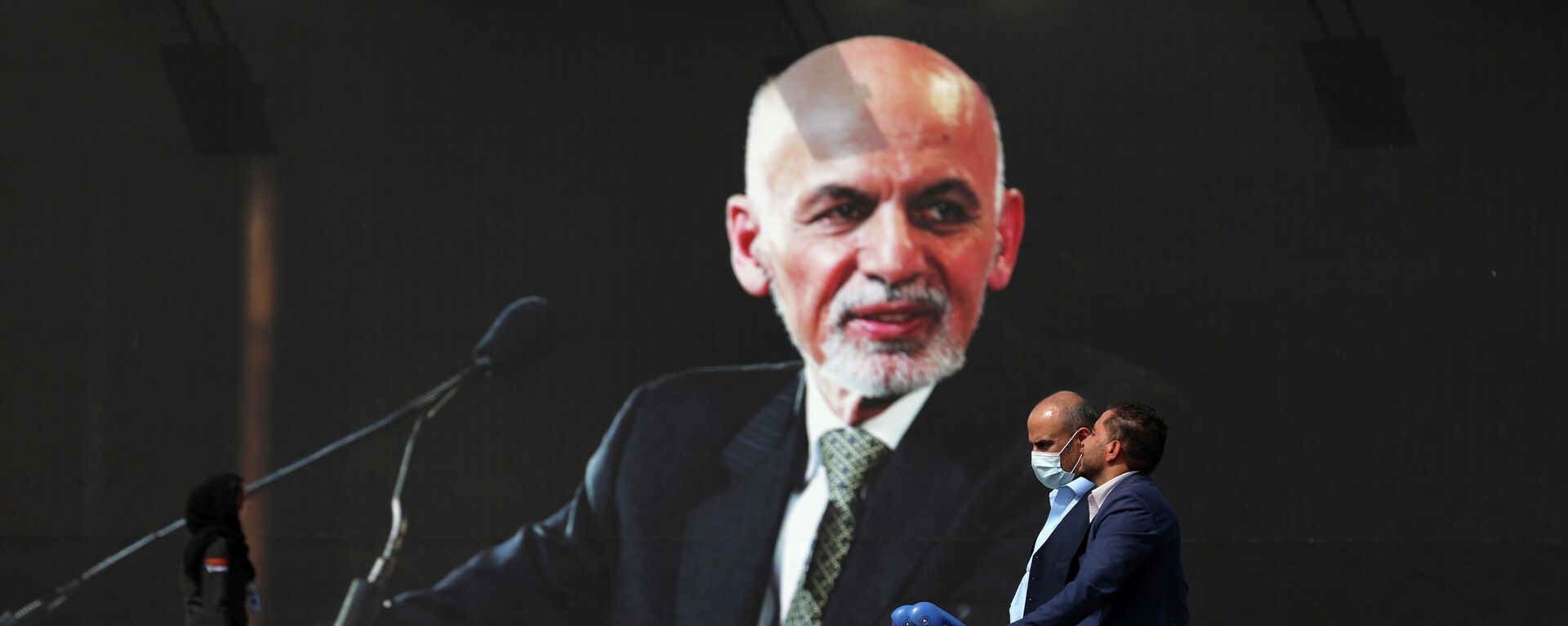
31 December 2021, 03:27 GMT
Evo Morales’ Happy Ending
On November 10, 2019, Bolivia’s long-serving democratic socialist president Evo Morales was
forced to step down after weeks of protests sparked by an election whose results were disputed by the country’s US-backed opposition. Characterizing the crisis as a “coup” and fearing he would be killed by assassins hired out by his enemies, Morales fled to Mexico, where he was granted asylum by President Andres Manuel Lopez Obrador.
The Trump administration hailed Morales’ ouster, with the US president
tweeting that the unrest sent “a strong signal to the illegitimate regimes in Venezuela and Nicaragua that democracy and the will of the people will always prevail.”
But the anti-Morales’ plot’s victory was short-lived. Immediately after touching down in Mexico, Morales vowed that he’d remain in politics, and that his “fight” against “discrimination and humiliation” would continue.
In late 2019, after the election victory of leftist forces in Argentina, Morales traveled to that country, where he was granted asylum. In November 2020, after new elections in his home country saw the victory of Luis Arce, his former finance minister, Morales triumphantly returned to Bolivia. Today, although he is not president, Morales remains a major force in Bolivian politics, consistently attacking “Yankee imperialism” and recently calling on Bolivia and Argentina to join forces to become a global lithium-producing superpower.
The fate of his adversaries has not been so bright, with Jeanine Anez, the right wing politician who took over after Morales’ ouster, recently
sentenced to ten years in prison for her role in the 2019 coup.
In 2012, Yemeni politician Abdrabbuh Mansur Hadi seemed to have the world at his feet. Succeeding President Ali Abdullah Saleh, whom he faithfully served as vice president starting in 1994, Hadi won the February 2012 presidential elections with an impressive 100 percent of the vote, running as the sole candidate. He proceeded to initiate a US- and Saudi-supported reform program
aimed at transforming Yemen into a federal model of government under which six regions would enjoy large-scale political autonomy. Hadi also supported ramping up cooperation with Washington to fight piracy in the Gulf of Aden, and al-Qaeda** cells attempting to set up shop in Yemen’s sparsely populated northeastern territories.
Hadi’s reforms, allegations of corruption, and the ill-fated decision to end fuel subsidies in 2014 proved fatal, and between late 2014 and early 2015, much of the country was overrun by the Houthis, an Islamist, social justice-oriented political and militant movement dominant in the country’s populous western provinces. In January 2015, Hadi left his presidential palace in Sana’a for the last time, and, without resigning, flew to Saudi Arabia.
Two months later, in March 2015, a Saudi-led military coalition began a military operation in Yemen aimed at restoring Hadi to power. Seven years on, the coalition has made little progress, and the impoverished southern Arabian nation remains mired in a deep political, military, economic and humanitarian crisis. Meanwhile, the Houthis have counterattacked by launching drone and missile strikes targeting Saudi infrastructure, military bases, airports, oil facilities, missile defense systems and cities, with no amount of sophisticated US-made air defense hardware seeming sufficient to stop the attacks.
As for Hadi, the exiled president
resigned from the post in April, transferring power to an eight-member ‘presidential leadership council’ tasked with negotiating a permanent ceasefire with the Houthis.
Of all the ejections from office featured in this list so far, perhaps none have been more consequential to the geopolitical instability being experienced by the world today than that of Ukrainian President Viktor Yanukovych.
Yanukovych handcrafted the crisis which would culminate in his ouster in the winter of 2013 by pulling a major political U-turn and rejecting an association agreement with the European Union in favor of closer ties with the Russian-led Eurasian Economic Union. The decision prompted pro-EU protesters to flood the center of Kiev, with demonstrators establishing tent encampments and occupying the heart of the city – the Maidan Nezalezhnosti (lit. ‘Independence Square’).
Protests continued for weeks, with Yanukovych making concessions under EU pressure, accepting the resignation of the government of Prime Minister Nikolai Azarov in late January, and negotiating with an increasingly emboldened opposition to try to resolve the crisis.
On February 20, protests turned bloody, with 49 demonstrators and four police officers killed by
mysterious snipers in a single day. On February 22, just a day after reaching an EU-backed agreement on the settling the crisis through early elections, Yanukovych fled Kiev in fear for his life, traveling east and slipping across the border into Russia, where he was offered refuge. Pro-European forces in Ukraine’s parliament drafted a resolution to strip Yanukovych of power, claiming he had “withdrawn from his duties in an unconstitutional manner.” From Russia, Yanukovych blasted the new authorities, and characterized his ouster as a coup d’état.
On January 14, 2011, President Zine El Abidine Ben Ali’s 24-year reign as Tunisian leader came to an end, with the president and his family fleeing the country to Saudi Arabia after weeks of protests which would hail the start of the so-called ‘Arab Spring’. The ‘Tunisian Revolution’ was driven by long-standing grievances among Tunisians about corruption, high unemployment, inflation, and general poor living conditions, as well as limitations on freedom of speech. The protests were sparked by 26-year-old street vendor Mohamed Bouazizi, who set himself on fire in the street after police confiscated his wares when he failed to pay a bribe, and after his plea for help from the local governor was left unanswered. The young man's act, which would cause over 100 copycat immolation attempts, would spark a month of protests which culminated in Ben Ali’s ouster.
After his ejection, the Tunisian president would live to a ripe old age of 83, passing away in Jeddah, Saudi Arabia in September 2019. But the unrest which his removal sparked would end up transforming much of the Middle East and engulfing some of its countries in crisis which continue to reverberate to this day. In 2011, major protests rocked Algeria and Yemen, and led to the overthrow of the government of Hosni Mubarak in Egypt. In Libya, NATO lent a ‘helping hand’ to anti-government rebels by launching a campaign of airstrikes against forces loyal to Muammar Gaddafi, culminating in his ouster and televised murder, and turning Libya into a failed state. The contagion of the Arab Spring also spread to Syria, which was turned into a breeding ground for jihadist militants who flocked to the country from the region and across the globe to take part in the unsuccessful US, Turkish, Saudi and Qatari-backed campaign to try to oust the government of Bashar Assad.
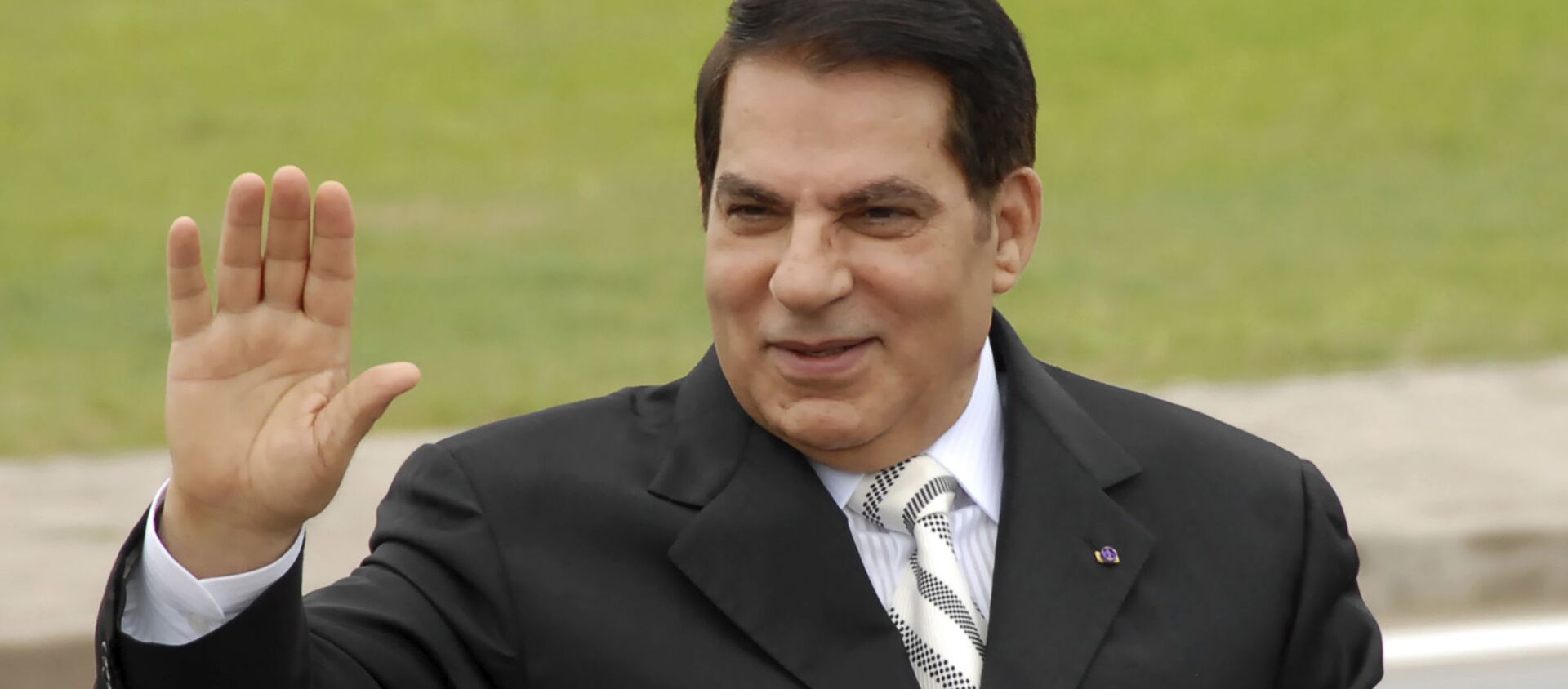
21 September 2019, 17:53 GMT
* An organization subject to United Nations sanctions for terrorist activities.
** A terrorist group outlawed in Russia and many other countries.
